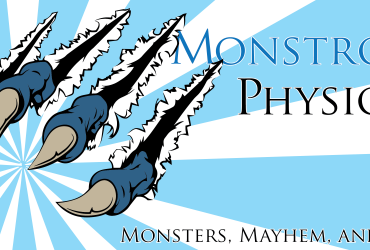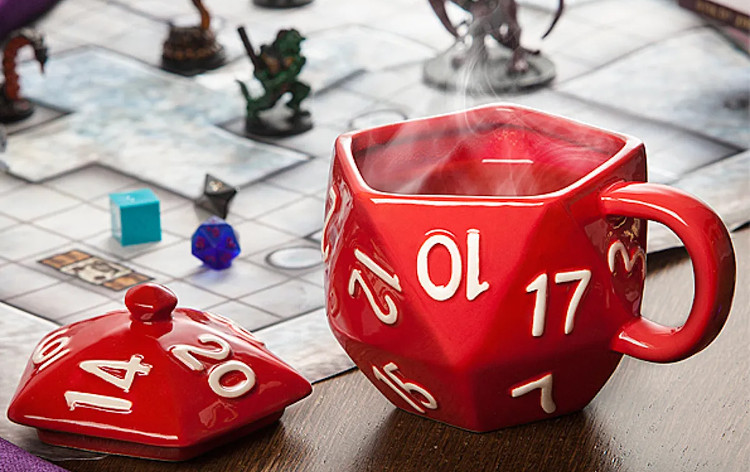The following situation emerged shortly into a session run by my friend and first time GM Amelie (pronounced Emily, despite what your eyes might tell you):
After killing a monster that ambushed us in a room with cavernous cracks in the walls and furnished by a note-covered desk, Am declared “now you’re free to look through the desk.”
We asked if the package was on the desk. “No, it’s covered in papers, they look like notes,” she said.
“Is the package in the desk?” we asked. “No, there’s just notes.” she said.
“Are the notes the package?” we asked. “No…” she said.
“Is the bartender still there?” we asked. “Um… yes?” she said.
And then the frustration set in.
We were a few pages into a PFS scenario (which shall go unnamed for spoiler reasons). The quest-giving scene at the beginning was simple: Get a package. It turns out the package was so insignificant from the scenario’s point of view that it was not even referred to as a package in the description of the room it was found in, a room which didn’t include read aloud text. Pulling the package was supposed to open the door to the room with the desk. Am missed that detail and had the bartender NPC open the door to the room with the desk.
This wasn’t a matter of a player or two being confused or distracted; all of the players were engaged and independently came to the same conclusion: ignore the desk in favour of the package. Why aren’t they taking my obvious hints to search the desk, Am wondered. Why would we, we all individually wondered back. At this point the GM perspective of the adventure and the player perspective of the adventure looked impassably different.
Between Am’s experience as a first time GM, and a recent situation in our Hell’s Rebels campaign, I realized that GMs could use some help shifting their perspective to see the adventure as the players see it. If you are GMing a scenario and the players are all focused on one thing and you don’t know why, this flow chart to see where the GM and player perspective diverged and how you can resolve it:
Clarifications:
Are the players talking about something in-game, and speaking in-character?
There’s a major difference between players so engrossed in their characters that they can’t justify breaking character to appease a GM’s frustration and players who are so involved in their own lives they can’t get engrossed in their characters.Is this something you brought up in-world?
Are the players caught up with something you introduced that wasn’t meant to be significant, like if you have the quest-giver NPC drink an exotic wine to reinforce that they are from a faraway land, only for the PCs to want to know more about this exotic wine instead of the quest the exotic wine drinker has for them? Or did you mention something innocuous that happens to catch their attention because of real world or campaign knowledge you didn’t bring up, like if a Chelish noble has a gnome slave and the PCs, knowing that halflings are the more common slave, are more interested in the fact that the slave is a gnome instead of the fact that the slave is a slave.Are they talking about something important to them?
I don’t understand how long some people can talk about the weather and traffic when they could be gaming, and I don’t have a flowchart to help me understand.Is it important to the plot?
Remember, you know what will be important, your players know what’s interesting. Ideally, those two are the same. Ideally.Is it important to one or more of the characters?
Not in a “I had to be a jerk, it’s in character” sense (a situation I consider more fallacy than reality, and will go into in the future), but in a “from the PC’s POV” sense. If Aquaman’s in your party and an NPC is wearing sharkskin boots, expect that fish fetishizing to get called out.Is it a serious conversation?
Some conversations can wait. In the grand scheme of things, that Infinity War speculation conversation can happen any time between now and April 25th. Some can’t, like an important family matter or even just pressing plans.Is there something more important to the plot?
It’s common for PCs to come across seeds of the campaign plot while dealing with the current session’s plot and it will look bigger and therefore more important. How do you convey that the lesser threat is the more immediate threat?Is the more important something time sensitive?
Events happening according to a timeline instead of waiting for PC actions to trigger unrelated events is not just important, it’s logical!
Now that you know the issue, what do you do?
They’re Distracted
If it really comes down to it and the players are dwelling on something out of character, snap them out of it. My group’s codeword for “shut up” is “It’s game time”. That’s the GM’s way of saying they don’t need a few more minutes, get ready to get into character. If the players are Bruce Wayne at a Wayne Enterprises function, “It’s game time” is the bat signal.Give It Time
One of the greatest strengths of a roleplaying game as a storytelling form is the ability for the audience to tell you what to focus on, because the characters are the audience. My group looks back more fondly on the moments that happened organically. Player-driven scenes or moments outside of convention brought on by a lucky or unlucky roll. They absolutely had fun with the plots and combats, but they cared more about their chats with Renaldo the housekeeper than defeating an earthbred god of chaos.If time is of the essence -the bridge is on fire, the dragon has the princess, the ruthless terrorist organization has the three elements that fuel the weather dominator- that’s a different story. But if the PCs are engaged in your campaign or your world or their characters, that’s the goal. The plot can wait.
Show, Don’t Tell
Sometimes the plot can’t wait, whether the PCs know that or not. That’s when you need to use the world to remind them why they need to do what needs to be done. If the bridge is burning, have a terrified NPC tearfully explain all of the ways their lives are worse without that bridge. If the dragon has the princess, find the quickest way to work in the eating schedule of a dragon. Is there a royal advisor worried they only have a few weeks, maybe less? Are there rumours around the city that this dragon has been gradually kidnapping more important figures every few weeks?The follow up to this is that if the PCs choose not to bite a hook or choose the easier but less moral of two options, let them (agency!) but show them the consequences. If they don’t save the princess, the kingdom loses faith in them and won’t trust them with further tasks until they fix their ruined reputations. If they locked a door to get away from an incoming threat, leaving an NPC on the other side, have the echoes of the threat reaching the trapped NPC echo through the dungeon.
An RPG isn’t a one-versus-many game or a cooperative game. An RPG is a story told by one third-person nigh omniscient narrator, several first person subjective narrators, and a controllable chaotic element. The goal is to weave these elements together to tell a story with one another, not at the expense of one another. Sometimes, that means stopping to make sure everyone is on the same page, and then going with the flow.






